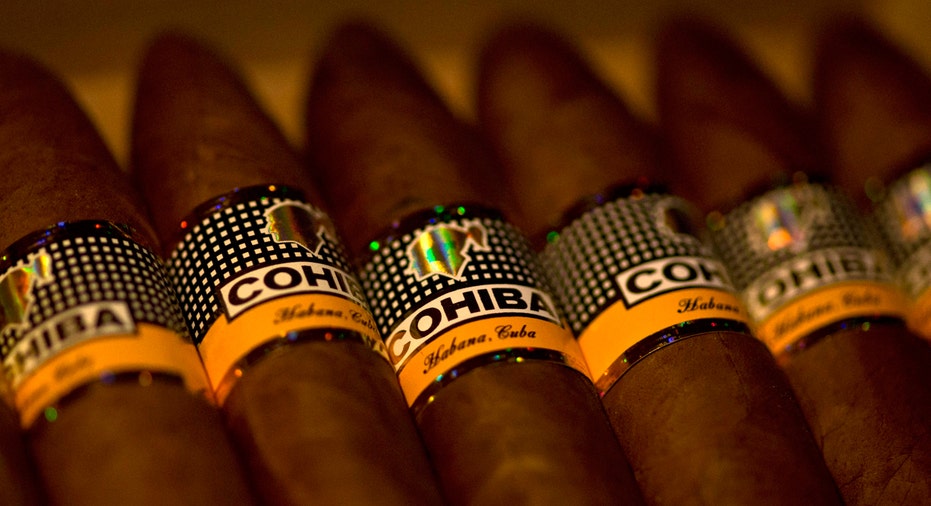Don’t Get Too Stoked on Cuban Smokes

With relations thawing between the United States and Cuba, a lot of cigar aficionados are likely wondering what’s in store for the U.S. cigar industry once things become more normalized.
President Obama is steadfast when it comes to improving our relationship with Cuba and just last month the U.S. announced new rules to further lessen restrictions with Cuba including allowing certain U.S. companies to establish offices in Cuba, and expanding banking and Internet activities. However, while there has been an easing of tensions and loosening of economic restrictions, it’s important to point out that the long-running embargo is still in place, and many restrictions can only be removed by legislation through Congress.
So, what does this mean for those who have been waiting for years to legally get their hands on the delectable Cuban cigars?
According to U.S. Customs and Border Protection, people who travel to Cuba are only allowed to bring home $100 of the merchandise consisting of alcohol or tobacco products (or a combination thereof), provided the merchandise is imported for personal use only.
Meanwhile, U.S. tobacco sellers will still be prohibited from selling Cuban cigars at wholesale. And their situation may not change any time soon, industry experts say.
“Fundamentally, the U.S. Congress controls the embargo on Cuba,” notes Kevin “Kip” Talley, a senior director at the International Premium Cigar and Pipe Retailers Association, an industry advocacy group.
“It would take a Congressional act to lift the embargo, and while there are certainly vocal supporters of this approach, there are a number of House and Senate Members of Congress that have voiced strong opposition to lifting the embargo without political freedom and democracy for the Cuban people,” he said.
“Senators Marco Rubio (R-FL) and Robert Menendez (D-NJ) are two legislators that are strongly opposed to lifting the sanctions on Cuba,” Talley said.
The amount of “red tape” to eventually get things rolling in the U.S. could be daunting to say the least. In fact, Talley cites no less than six statutes which are currently enforcing the embargo and would have to be reversed.
Still, many believe the transition will occur but it will be gradual once the embargo is lifted.
Chris Christopher, IHS Global Insight economist, figures it could take about three years for wholesale distribution of Cuban cigars in the U.S. to become law.
“When the Berlin wall was opened up, it was like shock therapy, there was a big rush to move [those countries] into a free market… We will see more gradual movement from Cuba… They will be looking at the U.S. for the transition.”
Talley believes the situation is complicated and there are other factors to consider.
For instance, Talley points out there is a pending rule on premium cigars by the Center for Tobacco Products at the FDA that could affect the future of premium cigars within the U.S. In the current proposal, Talley says, among other things, the FDA could ban product sampling and require expensive regulatory testing and registration. In addition, Talley says “Cuban cigars are expensive in other countries and may reach prices over $50 per cigar, which is not affordable to the typical premium cigar smoker.”
Glynn Loope, executive director at Cigar Rights of America notes “there has been an effort on behalf of members of Congress to actually amend this pending ruling,” effectively an effort by the industry to fight back against the costly regulations. Loope cites H.R. 662 : Traditional Cigar Manufacturing and Small Business Jobs Preservation Act of 2015. The bill was proposed to clarify exactly how much the industry should be regulated and to protect jobs within the industry.
A final determination by the FDA will be submitted to the Fed’s Office of Management and Budget. That decision is pending.
Talley believes business will pick up for Cuban cigars once the embargo is lifted, but that there may be an unintended consequence once Cuban cigars, long revered in part for their exclusivity, become mainstream.
“We will certainly see a temporary increase in retail sales if the Cuban embargo is lifted,” Talley states, as he believes curious customers, some of whom may never have smoked a cigar, will want to experience the famed “Cuban cigar” or buy them as gifts. “I say this will be temporary because I believe people will realize better products are coming out of Dominican Republic, Honduras, and Nicaragua.”
Loope concurs as he says: “You’ll find out you were smoking good cigars all along,” meaning Cuban cigars aren’t necessarily better than cigars produced by countries such as those mentioned above.



















